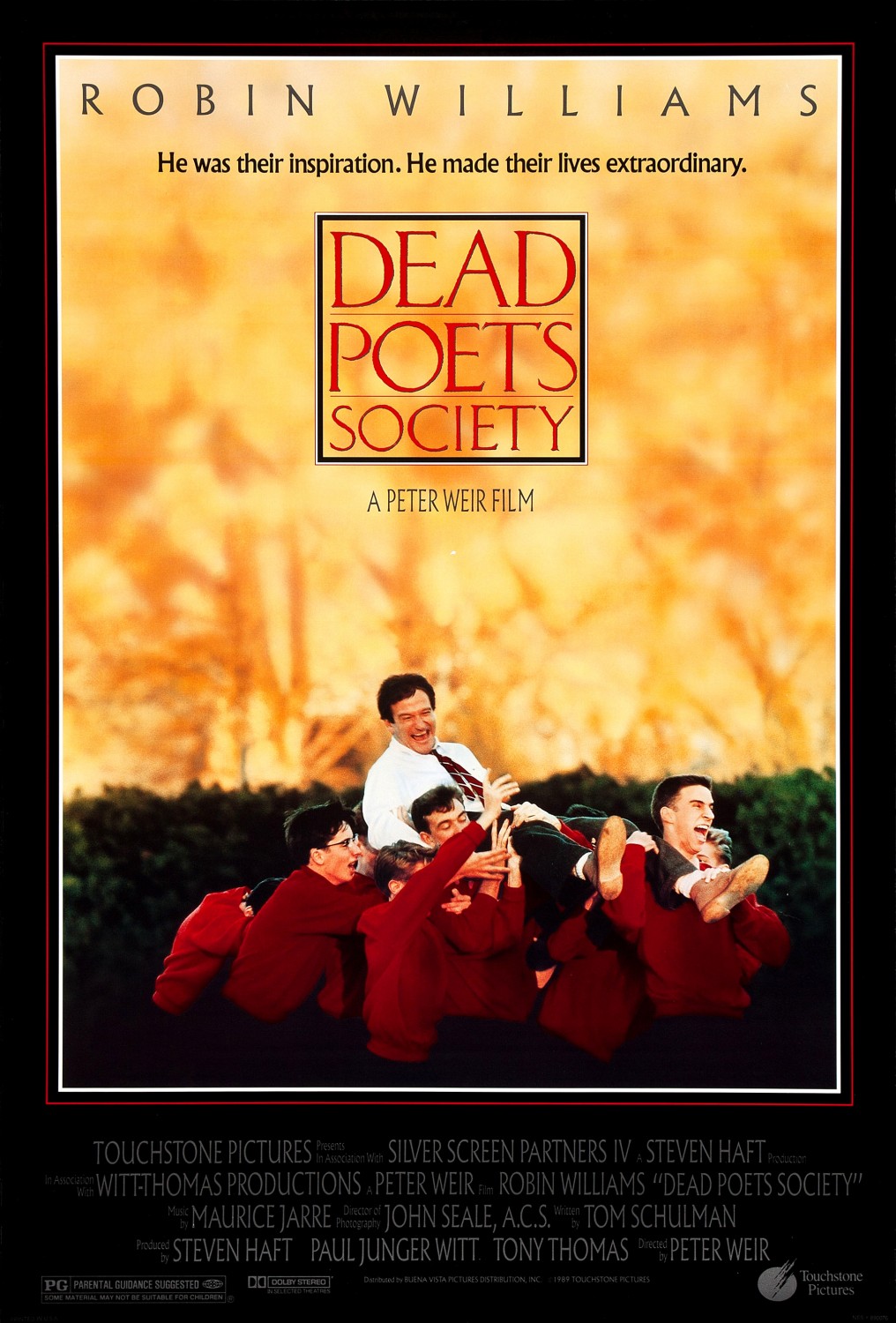
- Starring
- Robin Williams, Robert Sean Leonard, Ethan Hawke
- Writer
- Tom Schulman
- Director
- Peter Weir
- Rating
- PG (United States)
- Running Time
- 128 minutes
Overall Score
Rating Summary
The 80’s and early 90’s were a time in film history when movies about students and boarding schools became a thing. From Taps to December and School Ties, a lot of our favorite movies about this subject came from that period. Two of them were truly acclaimed at the time: Scent of a Woman, finally awarding Al Pacino his much-deserved Oscar (though not really for that particular performance) and Dead Poets Society, the best one of the lot, and the one that truly made the trend happen. 30 years after its release we can still see the reasons why it was so beloved when it was released.
Dead Poets Society takes place at Welton Academy, a boarding school in 1959 where the rules and guidelines are very restricted, and the students are being prepared to become prominent members of society and taking “established and respected” roles. Things change when a former student and now teacher, John Keating (Williams) comes back to Welton to teach English. At first, his unconventional educational method shocks the students, but very quickly he becomes an inspiration for these kids to get out of the mold and think for themselves, finally figuring out who they truly are.
Dead Poets Society was a huge success when it was first released, becoming a cult film that is still remembered fondly today. It’s easily understandable why: the film is a beautiful coming of age story that talks about finding one’s own voice, looking for beauty in life and the power of creativity and inspiration. The film takes its time to build our connection with the young students, and we get to understand why they deeply need Captain Keating in their lives. Keating changes all their lives, and we see these kids finally becoming alive and finding out who they truly are.
Dead Poets Society mostly focuses on two students and the deep impact the teacher has in their lives: Neil (Leonard) who has a very intimidating father (Kurtwood Smith) who has planned his entire life and doesn’t allow Neil to do anything he wants, and Todd (Hawke) a shy kid who is totally shadowed by the success of his older brother. When Keating comes to school, Neil rebels and finds joy in the arts, and Todd finally finds his own voice.
Hawke and Leonard are excellent as the two kids, and the entire young cast deliver beautiful, layered performances. Having so many young actors at the front is tricky, especially with this material, but Weir does wonders with them, creating a sense of naturalism and comradery among his actors that brings us closer to them and makes the entire movie feel honest and very meaningful. We care for all these kids, and we connect very strongly with them. Again, Neil and Todd are the leads, and seeing them blossom right before our eyes is a very moving experience.
Williams is perfectly cast here, using his comedic chops when needed to bring Keating closer to us while handing in a truly earnest, warm performance. Keating is the kind of teacher we all hoped all our teachers were when we were kids, but the reason the film became so beloved is that even if we never had that inspiring figure in our formative years, now we can easily have that experience through the film. Keating transcends the picture, and that is why so many people constantly go back to Dead Poets Society: no matter how old they are, when the movie begins, we put ourselves in Todd or Neil’s place and we let ourselves be inspired by Keating.
We all need inspiration at some points in our lives, we all need support and stimulus, and Dead Poets Society is a film that does exactly that. It’s not easy finding a film that empowers us to change and to move, to take action and go after what we want, find our voice and speak our minds, but O Captain My Captain does, and that makes Dead Poets Society a truly transformative experience.
still courtesy of Touchstone Pictures
If you like this review, look me up on Instagram for more suggestions.
If you liked this, please read our other reviews here and don’t forget to follow us on Twitter or Instagram or like us on Facebook.
Discover more from
Subscribe to get the latest posts sent to your email.
